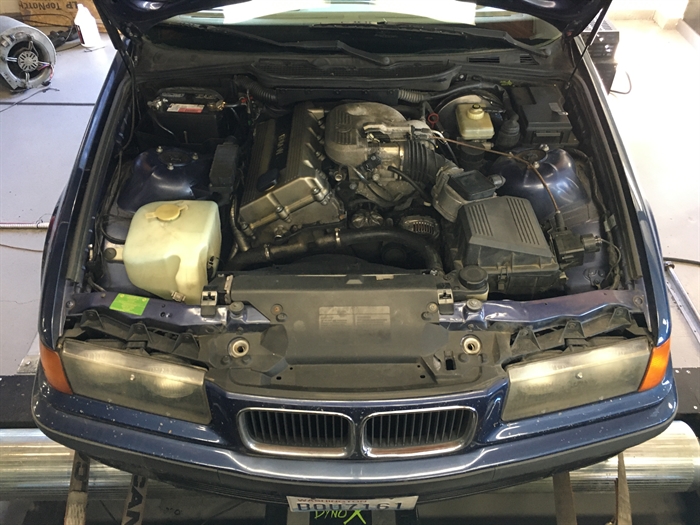Vital Factors To Consider for Choosing the very best Engine for Your Demands
In the world of picking the suitable engine to meet your demands, a number of crucial elements demand careful factor to consider to ensure ideal performance and effectiveness. From the nuanced equilibrium in between power and efficiency to the often-overlooked aspects of maintenance and service requirements, each aspect plays an essential function in determining the most appropriate engine for your certain demands.
Power and Performance
When evaluating engines for optimum efficiency, it is important to focus on both power output and effectiveness. Power outcome gauges the capability of an engine to create energy, which directly affects its performance. A high power output is vital for demanding tasks such as durable applications or high-speed requirements. It ensures that the engine can handle the work properly and successfully. Power alone is not enough; performance plays a substantial function in identifying the overall efficiency of an engine. Effectiveness refers to how well the engine transforms fuel into useful power. A much more effective engine will supply much better mileage, reduced discharges, and decreased operating expense. Striking the right equilibrium between power output and performance is essential to selecting an engine that meets your certain needs. When making this choice, it is important to take into consideration aspects such as the intended usage of the engine, environmental influence, and long-term price implications. By meticulously examining both power and efficiency, you can pick an engine that supplies optimal efficiency and fulfills your demands properly.
Fuel Performance and Economy
Gas performance refers to the engine's capacity to convert fuel into energy with minimal waste, directly impacting operating costs and ecological sustainability. Engines with greater gas performance not just lower gas expenses however likewise reduce carbon discharges, contributing to a greener procedure.

Compatibility and Application
Considering the gas efficiency and economy of an engine, the following essential facet to address is its compatibility and application within particular functional contexts. Compatibility refers to just how well the engine integrates with the total system or devices it powers. It entails elements such as physical measurements, installing alternatives, electrical user interfaces, and control systems. Guaranteeing compatibility is necessary to stop issues such as overheating, resonances, or power imbalances (bmw 318ti).
In addition, the application of the engine is similarly vital. Different engines are created for specific functions, whether it be commercial equipment, marine vessels, vehicles, or power generators. Comprehending the desired application allows for the choice of an engine that can provide the needed power result, torque, and operational qualities. A high-revving engine made for efficiency cars would not be suitable for heavy-duty building devices that needs high torque at low speeds.
Upkeep and Service Demands
Upkeep and service needs play a vital role in making sure the longevity and optimal efficiency of an engine. Normal maintenance Web Site is necessary to avoid failures, expand the life-span of the engine, and keep its efficiency. When selecting an engine, it is crucial to consider the producer's suggested upkeep timetable and the schedule of service centers or qualified specialists.
Variables such as the frequency of oil changes, filter replacements, and total inspections can substantially influence the engine's efficiency. Some engines may require more frequent servicing based on their style and use, while others might have longer intervals between maintenance checks. It is essential to comply with these service requirements to prevent costly repair work and unforeseen downtime.

Price and Budget Plan Considerations
When choosing an engine for a particular application,Spending plan constraints often play a substantial role in the decision-making procedure. When thinking about the cost and spending plan ramifications of picking an engine, it is necessary to evaluate not just the initial acquisition cost but likewise the long-term expenditures related to upkeep, fuel consumption, and possible upgrades or fixings. It is vital to strike a balance between the upfront price of the engine and its total lifecycle costs to make certain that the picked engine stays economically sustainable throughout its operational life expectancy.
Aspects such as gas dependability, longevity, and efficiency can directly impact the overall expense of possession of an engine. While an extra expensive engine may have higher upfront expenses, it might possibly cause reduced upkeep and gas expenses over time, thus providing much better value in the lengthy run. In addition, thinking about the schedule and price of extra components, as well as the convenience of upkeep and solution, can aid protect against unanticipated economic pressure in the future. By meticulously reviewing these price and spending plan factors to consider, you can make an enlightened choice that lines up with your operational requirements and financial restrictions.
Conclusion
Fuel effectiveness refers to the engine's capacity to convert fuel right into power with minimal waste, straight influencing operating prices and environmental sustainability.Elements influencing fuel efficiency consist of engine design, combustion performance, and total performance optimization. Furthermore, selecting the ideal fuel kind and quality as recommended by the engine maker can further improve performance and prolong engine life expectancy.
Engines with excellent serviceability functions and conveniently available parts can decrease upkeep prices and minimize the time the engine is out of operation - bmw 318ti. It is critical to strike a balance in between the upfront cost of the engine and its general lifecycle prices to ensure that the chosen engine stays monetarily sustainable this article throughout its functional life-span